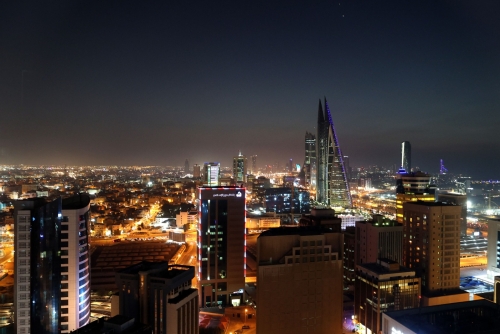New rules to convert visit visas into work permits in Bahrain
TDT | Manama
The Daily Tribune – www.newsofbahrain.com
Reported by Mahir Haneef
Bahrain government on Monday announced that it would not allow conversion of visit visas to work or dependent visas without a sponsor. While visit visas can be changed to work or dependent visas if the sponsor is the same, the fee for it has been increased by over four times.
The fee, which was originally BD60, now stands at BD250 per visa. The announcement came from Shaikh Hisham bin Abdulrahman Al Khalifa, Interior Ministry Undersecretary at Nationality, Passports, and Residence Affairs (NPRA).
The official said the decision was taken by Interior Minister H.E. General Shaikh Rashid bin Abdullah Al Khalifa. As per the decision of the Interior Minister, “it was decided to stop changing visit visas to work or dependent visas without a sponsor.
It was also agreed to increase the fees for changing visit visas to work or dependency visas from BD60 to BD250 only if it will be for the same sponsor,” the announcement said. Further, it said the decision is as per the government directives to intensify rules of changing visit visas to support the local workforce by making them the first employment choice.
The procedures would be carried out in cooperation with the Labour Market Regulatory Authority (LMRA) to promote the National Labour Market Plan and stop the exploitation of visit visas.
Calls had been made by various people in the Kingdom recently for tightening the rules regarding conversion of visit visas to work visas, citing its effect on employment prospects of Bahrain citizens. Several proposals had been made by the MPs in the Parliament to either completely stop the conversion or increase the fees for conversion of visit visas to work visas as well as for issuing work visas for foreigners. But what happens when fees is raised for issuing visas and has it been tried out in any country before?
The Daily Tribune got in touch with experts in immigration economics and immigration policies and they had plenty to say.
An economist’s viewpoint
Increasing the visa fees to lessen the inflow of migrants had been adopted by many countries around the world and the results were mixed, according to the experts.
Stan Veuger, a senior fellow in economic policy studies at the Washington-based think tank American Enterprise Institute, said, “The main way to think about this in economic terms, from the perspective of Bahrainis, is as a large increase in taxes on imported labour services.”
Further, Stan said such an increase on tax has a number of consequences. “Incidence: It is a tax increase, i.e. it makes those who pay the tax (or who reduce their reliance on expatriate labour) strictly worse enough. Perhaps corresponding tax reductions or an improvement in government services will make up for that, but that remains to be seen,” he said.
Regarding efficiency, Stan stated, “This kind of tax distorts the choice between relying on expatriate labour versus capital, one’s own labour, and other native labour.” When it comes to human capital and productivity, these distorted incentives can have consequences down the road, as Bahrainis will focus more on their efforts on activities in which they do not currently have a comparative advantage, the expert said. The higher visa fees will result in a redistribution, with jobs going from the expatriate workers to those who compete with them in the local market, he said.
“From the perspective of the expatriate workers themselves, on the other hand, it is a pure negative on all fronts,” Stan added.
How it would affect companies
Shayan Sultan, a partner at New York-based immigration services firm Fragomen, points out that it could affect smaller to mid-size companies.
“If the cost of employing expat workers increases in Bahrain, it may be challenging for smaller to midsize companies to cater to higher government fees, resulting in fewer job opportunities for expat workers. The attractiveness of Bahrain for expat skilled workers will remain as factors like social and economic infrastructure, affordable housing, ease of obtaining work permits, etc, will ensure Bahrain stays an attractive destination for expat workers,” he said.
But an increase in fees would not lead a shortage of skilled workers, according to the Fragomen expert. “No significant shortage of skilled workers can be foreseen at this point due to the higher cost of employing expat workers. Bahrain’s healthcare sector does not heavily rely on expat healthcare skilled professionals except for support staff, i.e., technicians, nurses, etc.
Any significant changes to government fees will increase healthcare facilities overall operational costs, impacting the recruitment of expat workers while promoting the employment of Bahrainis in the healthcare industry.” The expert also pointed out that there are examples of such fee increases across the world.
“There are examples where governments of many countries have increased the fees levied for expats. Some examples include Saudi Arabia, Egypt, United Kingdom and Kuwait. The aftereffects usually require companies to conduct more detailed analysis and budget planning to help them make the most beneficial decisions when planning to employ expat workers or develop new recruitment strategies,” he stated.
Immigration concerns
Chetal Patel, Head of Immigration, at London-based legal firm Bates Wells, cited the example of the UK, which is one of the most expensive immigration systems in the world due to associated costs linked to visas, in particular the Immigration Skills Charge (ISC) and Immigration Health Surcharge (HIS).
Many organizations are re-visiting ways in which they can financially support migrants with their visas as it costs over GBP 20,000 (9,526 BD) for a worker and his family for the visas, she pointed out.
“Whilst the UK remains focused on attracting the brightest and the best, there’s a concern that skilled workers will simply go elsewhere due to the exorbitant immigration costs,” Chetal stated.
Are there any positives?
India tops the list of countries with the highest number of emigrants per year.
Ajay Sharma, who is based in New Delhi and is the founder director of the oldest and largest immigration consultancy firm in India, does not think higher visa fees would affect the attractiveness of Bah[1]rain among expat employees.
“I don’t think so because the burden is on mid or large-sized Bahraini employers. They will pass it on to end-users and utilities. Additionally, with the proposed fee increase, Bahrain could generate more revenue to invest in infrastructure and social welfare programs for its citizens.
Also, the fee increase might incentivize Bahraini employers to hire more local workers, boosting employment opportunities for Bahraini citizens. However, it is vital to consider the potential impact on small businesses and start-ups, as the increased fees may pose a financial challenge for them when hiring expat workers,” Ajay said.
He also does not believe that it will lead to a shortage of skilled workers in Bahrain, especially in critical sectors such as healthcare.
“I doubt that will happen. It will be interesting to see if other countries in the region follow suit and increase fees for expat workers, which could shift the dynamics of the job market in the Gulf region. My experience with the policy actions of bloc countries — in this case, the Middle East — worldwide is that other countries may soon follow with similar action.
Also, as I stated above, it depends on the size of the company hiring international workers, the percentage of international workers in their overall workforce, and their ability to pass on the additional costs to end customers of their products or services,” Ajay explained.
Levying higher visa fees from expatriates is also not unprecedented, states Ajay, whose firm processes thousands of visa applications from immigrants to countries across the world.
“It happens all the time. The US government recently increased the premium application processing fee. The Canadian government has increased the application processing fee for different categories. The demand and supply situation is such that employers can only do with essential overseas workers that it has no impact beyond creating short-term news,” he said.
Possible adverse effects
However, Shai Zamanian, Managing Director of immigration consultancy The American Legal Center of Dubai, does not agree and says higher visa fees will have an adverse effect. “The messaging behind the tariffs is exclusion. Expatriates questioning to take the leap and move to Bahrain, normally base their decision on a key principle: Will I be welcomed?
By virtue of taxing every foreigner seeking to make their dreams a possibility in Bahrain, the messaging is unambiguous. The costs related with hiring expats will certainly trickle down to the employee themselves, some may have to pay this price upfront before embarking on their new job.
If the success of the globalized world we live in today is the interconnectedness of global skills, this new policy will certainly negatively affect competitive skilled expat workers,” Shai said. Whether the higher fees would lead to a shortage of skilled workers need to be seen as it evolves, Shai added.
“With a tax, there will certainly be less expats hired as company’s face a fiscal crunch. In the short-term there will be a shortage of skilled workers as it takes time for the marketplace to adjust to change and then decide whether to hire expats or to continue to hold.
The long-term impacts could be that the quality of candidates and the number of actual hires would decrease, however it would need to be reflected on after some time. Conversely, there could be a positive affect if HR directors understand the costs of bringing on expats so they work more rigorously to only bring in the most skilled.
We have to take the wait and see approach,” he said. But Shai agrees that the practice of levying higher fees from expatriates for visas has been tried out in many countries. “Absolutely. Australia and Canada have imposed heavy restrictions on foreigners purchasing real estate within some of the hottest real estate markets in the world such as Sydney and Vancouver.
There are instances where placing your own citizens first makes a lot of sense. However, there needs to be a discussion around the intention of the new policy in Bahrain. Is this new regulation in place to promote the hiring of the local population?
If so, perhaps other incentives should be considered in actual hiring of locals. Just because its taxing to hire foreigners, does not mean that instead local populations will be hired. Here, we should lean on institutions that have discussed and analyzed the issue and perhaps release a mandate outlining the intentions.
Otherwise, there could be backlash and optically, it could be perceived as undue punishment towards those that we require to continue building a vibrant Bahrain and GCC,” Shai, who owns the US-licensed legal firm based in Dubai told.
In short, the jury is still out there on whether higher visa fees would lead to more jobs for Bahrainis, and the real effects of the change will be known only with time. What do you think will be the effects of the change? Tell us at editor@newsofbahrain.com
STAN VEUGER
SHAYAN SULTAN
CHETAL PATEL
AJAY SHARMA
SHAI ZAMANIAN
Related Posts






